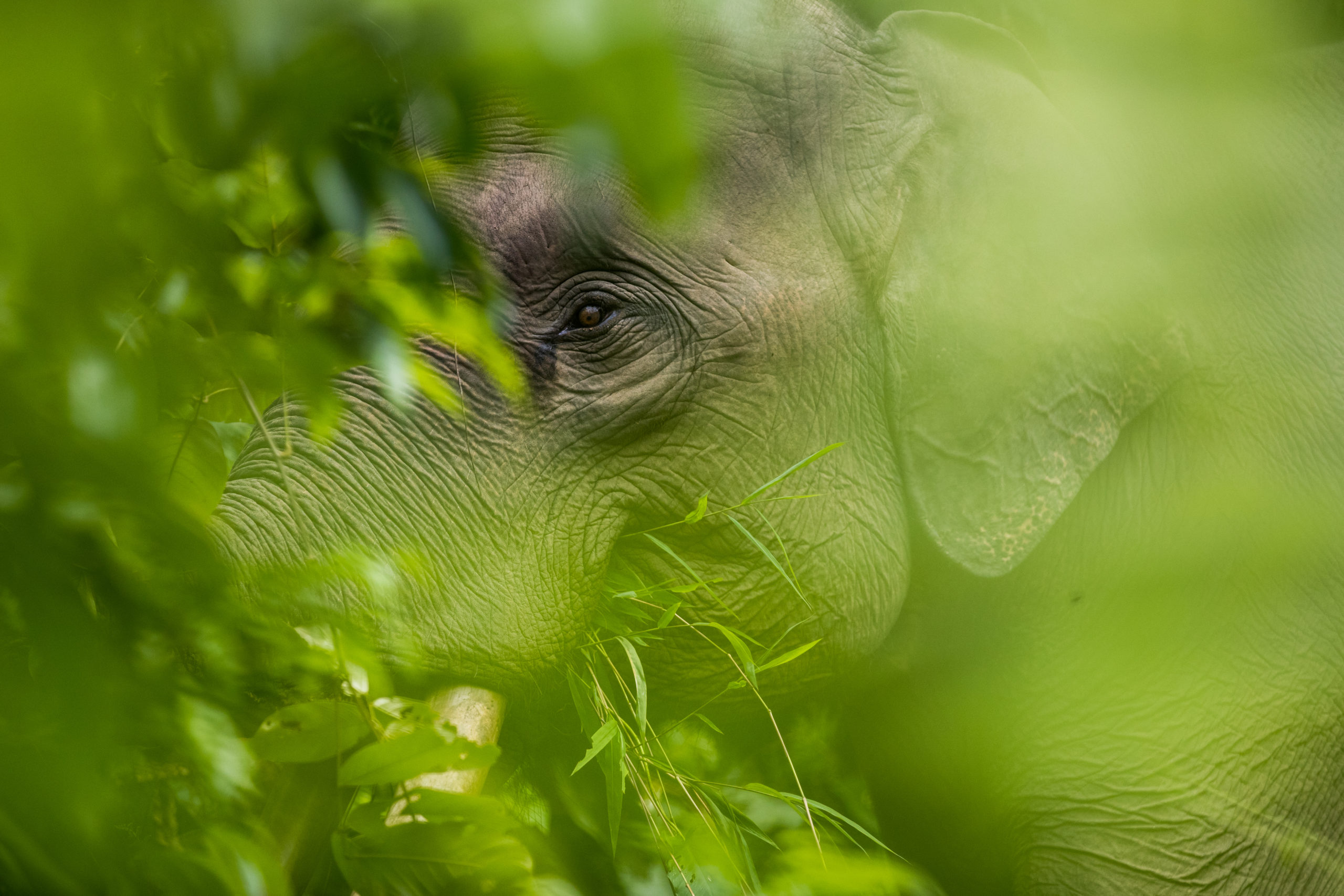2021 included major advances in conservation strategies, but deforestation continues and one rogue company stands out as the year’s biggest deforester
In many ways 2021 was a year of major advances in efforts to protect the Leuser Ecosystem, but the stark reality remains that thousands of acres of primary rainforest were still destroyed across a landscape teetering on the brink of maintaining viable habitat for iconic wildlife species facing imminent extinction. By any measure, the Leuser Ecosystem is a globally significant landscape that merits the highest possible level of conservation priority. The Leuser is recognized as a planetary-level hotspot for biological diversity, and as the only place left where critically endangered orangutans, tigers, rhinos and elephants inhabit the same region.
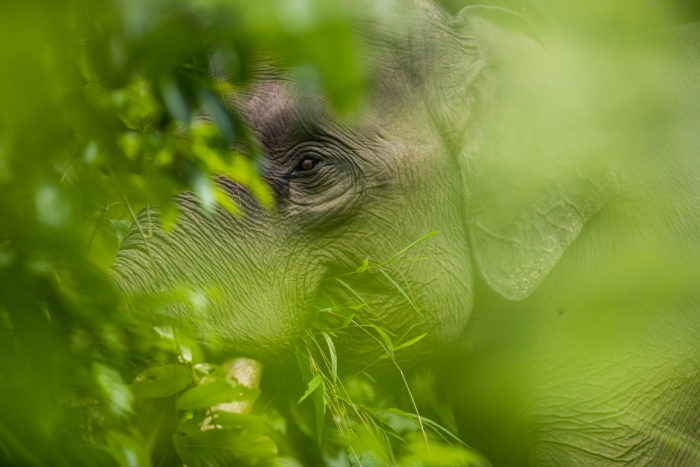
In addition to the extraordinary richness of life they support, the lush forests and peatlands of the Leuser are also carbon sequestering powerhouses, which means their destruction has potentially catastrophic consequences for all of us as the climate crisis continues to accelerate. Scientists have long understood that there is no viable solution to addressing runaway climate change that does not include ending the deforestation crisis as well. For this reason, the world’s forests took center stage, alongside fossil fuels, at last month’s COP 26 climate summit in Glasgow, where a global forest pledge was signed by world leaders that aims to end deforestation by 2030.
But the core problem remains that while ‘no net deforestation’ commitments are on the rise, the last stands of rainforests continue to be destroyed under the watch of the same major brands and palm oil traders that have adopted these commitments. The high stakes and global notoriety of the Leuser Ecosystem has made the Leuser a sort of litmus test for how seriously corporations are taking these commitments and how effectively these tidy paper promises are being implemented in the messy real world, where primary forests are still being cleared for global commodity production. Rainforest Action Network’s Leuser Watch program has been keeping a close eye on forest loss in the Leuser Ecosystem and below is a summary analysis of what 2021 looked like on the ground in the tropical lowland rainforests of northern Sumatra.
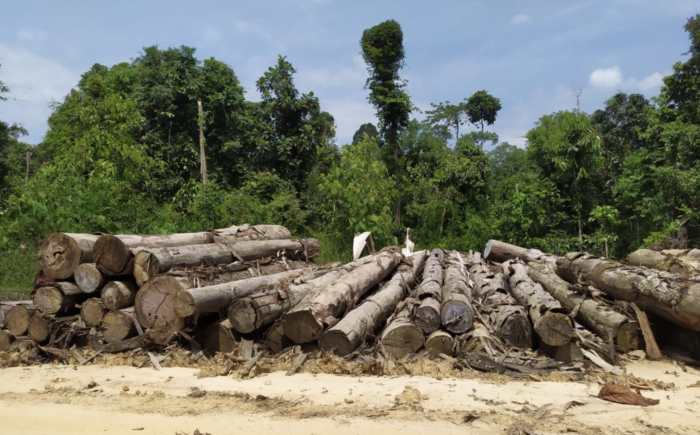
Active logging and road building in August of 2021 inside PT. Nia Yulided Bersaudara concession
Whilst Unilever and Nestlé have published their ‘no buy’ commitments for the controversial producers that have failed to stop deforestation, others including Procter & Gamble, Mondelēz, PepsiCo and Ferrero have failed to respond to public concerns on their connections to this group of rogue palm oil companies. Please take action today to demand these global brands fully enforce transparent and verifiable no deforestation policies across the Leuser.
The data: biggest deforesters in the Leuser Ecosystem during 2021
Analysis of satellite data undertaken by Rainforest Action Network between January and October 2021 has identified the following palm oil companies with operations located in the Leuser Ecosystem most responsible for deforestation in 2021:
- PT. Nia Yulided Bersaudara cleared 504 acres.
- PT. Indo Alam cleared 84 acres.
- PT. Putra Kurnia cleared 67 acres.
- PT. Tegas Nusantara cleared 49 acres.
- PT. Surya Panen Subur II cleared 27 acres.
- PT. Laot Bangko cleared 20 acres.
- PT. Perkebunan Nusantara I Blang Tualang cleared 10 acres.
- PT. Beaurata Maju cleared 10 acres.
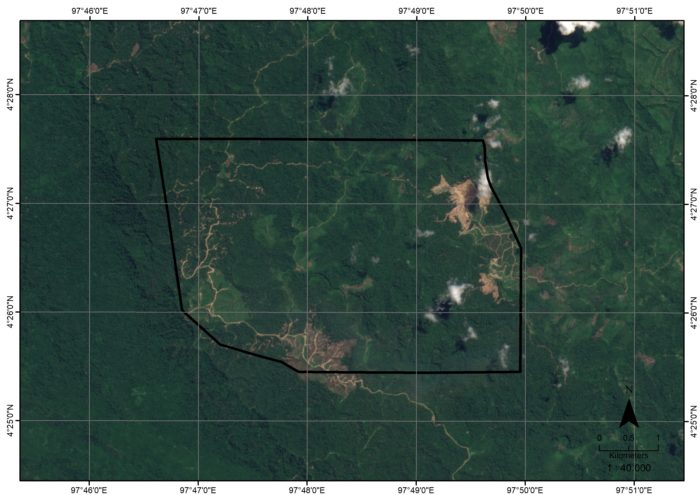
Satellite imagery of fresh Leuser Ecosystem rainforest clearance by PT. Nia Yulided Bersaudara
The single individual most responsible for deforestation inside palm oil concessions in the Leuser Ecosystem is the owner and the President Director of PT. Nia Yulided Bersaudara (PT. NYB)––Mr. Dedy Sartika. Mr. Sartika is a son in law of the former acting governor of Aceh, Tarmizi Abdul Karim. Previous investigations have found that the permit for this concession was controversial, as it was first granted first by Tarmizi Abdul Karim. The issuance of the permit to PT. NYB for the benefit of a member of his family creates a strong appearance of conflict of interest that merits further investigation. To our knowledge, the government of Indonesia has not initiated an investigation into this case, nor revoked this permit during its review of existing palm oil concessions. The PT. NYB case also shows that 5 years after the declaration of the palm oil moratorium in Aceh by the national and provincial governments, it has not been effectively implemented inside all existing palm oil concessions in the Leuser Ecosystem.
There has been some positive news during 2021 as a number of Leuser producers claim to have halted forest clearance after being exposed for destroying rainforests inside their concessions. The most notable progress is the end of land clearing by the government’s own plantation company PT. Perkebunan Nusantara (PT.PN) I Blang Tualang, PT. Tualang Raya, PT. Indo Sawit Perkasa and most recently PT. Laot Bangko.
The Government of Aceh has also published a Green Growth Plan which holds promise as it includes a roadmap for producing sustainable commodities whilst protecting forests, like those under threat in the Leuser Ecosystem. Another government initiative is in Aceh Tamiang where the district government, IDH (the sustainable trade initiative), civil society organizations, farmers and palm oil producers (including PT. PN, Mopoli Raya, PT. Semadam, PT Socfin, PT. Patisari, PT. Bumi Sama Ganda and PT Bahroeny) continue to collaborate to improve agricultural production across over 32,000 acres of land, conserve over half a million acres of High Conservation Value (HCV) areas and High Carbon Stock (HCS) forest and enhance the livelihoods of 3,000 smallholder farmers and 500 community members.
This year, Nestlé and Unilever published their ‘forest footprints’ for Aceh which identified millions of acres of rainforests, and hundreds of thousands of acres of peatlands, that remain at risk. These companies also identified the need for more work to understand the extent of customary forests inside the Leuser Ecosystem and across the province of Aceh. Unilever has also partnered with district governments, IDH, PepsiCo, Musim Mas Group and civil society organizations to launch an innovative landscape level HCV-HCS mapping project in Aceh Tamiang and Aceh Timur. It is hoped that the HCV areas and HCS forests identified can be spared from future deforestation and this project can trial new ways to identify customary forests and ensure legal recognition and respect to customary rights of communities across a jurisdiction and commodity supply chains. New breakthroughs have also been made in trialing collaborative monitoring systems to understand indicative sourcing areas in supply chains where suppliers have so far failed to achieve traceability to the land area where the palm oil is produced.
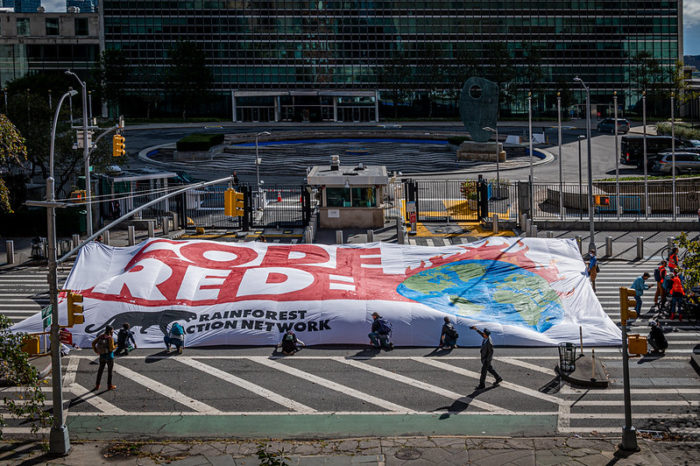
Massive call to action banner unfurled at the entrance to the New York headquarters of the U.N. Oct 2021
2021 needed to be a turning point for the protection of the world’s forests, especially as brands had failed to deliver on their commitments to end deforestation for palm oil by 2020. Communities across the globe have taken to the streets to declare a code red climate emergency. The unrelenting pressure on the companies most responsible for the climate crisis ––including global brands sourcing Conflict Palm Oil––has started to curtail destruction in some parts of the global palm oil supply chains, including by some suppliers in the Leuser Ecosystem. But to truly end deforestation across the last lowlands of the Leuser Ecosystem much more needs to be done by Unilever, Nestlé, Procter & Gamble, Mondelēz, PepsiCo, Ferrero, and their suppliers, to halt deforestation by the rogue palm oil companies like PT. Nia Yulided Bersaudara and to address the emerging trends of deforestation outside concessions across this globally renowned landscape.
